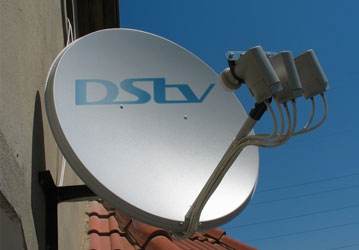The Rainbow
Nigerians are crying blue murder over the latest price hike by the cable television service provide DSTV, which is owned by the South African company MultiChoice.
The company in a communication to its customers said, Dear Customer, please be advised of a price adjustment on your DStv Compact Plus package from 1 September. Your new monthly subscription will be N12,400.
For instance, a Compact Plus Package which comes at a monthly subscription of N10,925 will now go for N12,500. The compact package will now go for N7,900 from the initial price of N6,975. While DStv premium subscription is now N18,400.
The company, which enjoys near monopoly in cable television services in Nigeria, had earlier in June made an upward review of its prices which it said was adjustment to the Federal Government’s new Value Added Tax regime.
In the June price increase, rates for Premium subscribers increased to N16,200 from N15,800, Compact Plus subscribers to N10,925 from N10,650. Similarly, Compact bouquet price were adjusted from N6,800 to N6,975, Confam bouquet from N4,500 to N4,615, while Yanga subscribers were asked to pay N2,565 against N2,500.
Prices Max on GOtv were moved to N3,280 from N3,200, Jolli and Jinja subscribers were to N2,460 and N1,640 respectively.
MultiChoice explained then that the increase in fees was in line with the legislation of the Federal Government which increased VAT in January 2020, with implementation effective 1 February 2020.
“In order to provide some relief for customers, MultiChoice Nigeria has absorbed the cost of increase in VAT for the past four months, keeping its products and services at the old 5% VAT, however this is no longer possible and the mandated 7.5% VAT will be applied accordingly.
Nigerians have expressed outrage at the incessant increases in the prices paid by DSTV subscribers without being sensitive to the mood and economic environmnt of the people.
“It is irresponsible for a company that has been operating in this economy to just wake up and increase prices with minding how the people will receive it.
”The most insensitive of them all was the increment during the pandemic when many responsible companies were seeking ways to identify with the challenges being faced by the people. I think it’s time the Federal Government did something about this nonsense,” Godwin Eke, who lives in Aguda in Lagos told our correspondent.
For Samuel Ajayi, a young entrepreneur in Ikeja, the problem is Nigerians are so permissive. No Nigerian business can go to South Africa and behave the way MultiChoice is doing Nigeria and nobody is putting a coordinated challenge. “They have come to understand that Nigerian consumers are all noise no action”, he said.
According to him, this a subject for consumer activities to take and push to the end.
The Federal Government had earlier expressed its plan to end the monopoly enjoyed by DST in Nigeria. The plan it said to include ending exclusive rights to sporting events.
Only DStv currently broadcasts major football competitions in Nigeria, especially the English Premier League.
The government said it had amended Nigeria’s broadcasting code to prevent DStv and others from monopolising their channels and contents.
Minister of Information and Culture, Alhaji Lai Mohammed, told House Representatives members probing DStv for allegedly cheating its Nigerian subscribers by restricting them to prepaid plans and increasing its subscription rates on June 1, 2020, that the government wants the cable television provider to implement pay-per-view to enable Nigerians manage their expenditure on television viewing.
Mohammed dismissed claims by DStv that pay-per-view was not proper for the Nigerian market, saying that StarTimes, the cable arm of the Nigerian Television Authority, was already operating it for sometimes now.
Sources who close to DSTV management in Nigeria however claim that the company is only reacting to changing economic variables. According to the sources, the depreciation of Naira against the dollar means that they can not continue to charge the same rates as before.
According to them, broadcast rights for important offerings premiership and UEFA Champions League broadcast rights are paid for in dollars, which means that the company has charge more to sustain such programmes.














